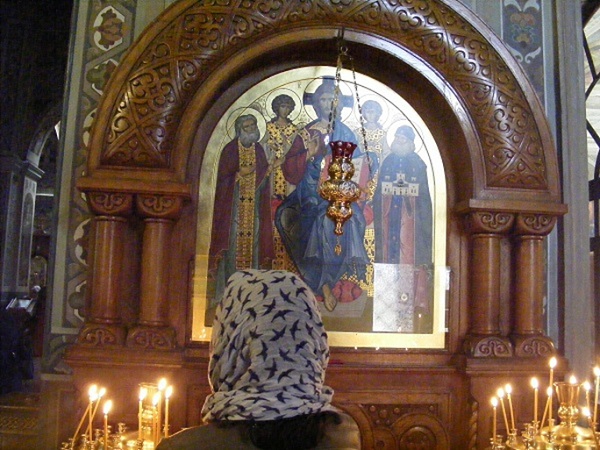Contrition not Dejection
8 March 2022Holy Lent is starting and the Church has ordained that, at the services on the days of this period, texts and hymns should be read from the book of the Triodio. This book took its name from the three odes, that is the three groups of hymns which are sung.
According to the view of various historical scholars, the number three was included symbolically, as denoting the model of the Holy Trinity: the Father, the Son and the Holy Spirit. Moreover, it conforms to the harmonious glorification of the three parts of the universe: humankind, angels and the rest of creation. So, on a daily basis, all the hymns of the three odes of Lent express the full theological conscience of our Church in all its breadth and depth. When we listen to these hymns and pay attention to their meaning, we see that they refer to the creation of the universe, as well as the fall and recreation of humankind and our nature. In other words, they’re liturgical incentives which aim at awakening our conscience, by making us aware that we’re experiencing a different ecclesiastical period, the purpose of which is to bring us to our final destination of the resurrection.

Through its inspired hymnography and its services in general, the Church wants and has as its aim our glorification in Christ. The holy Fathers say that Lent is a time of contrition but not dejection. In the hymns for this period which we read, we hear the constant refrain: ‘pay heed to me for I am troubled’. This doesn’t lead to depression, but to healing of the soul, in the form of greater divine light and joy.
It is no coincidence that, in monasteries, the main church is in the center of the courtyard, to show that worship should be at the center of our life. Great Lent serves the same purpose. It places penitential services at the center of our daily life so that we can absorb their divine messages. Matins, vespers, compline, presanctified liturgies and those on Sunday by Saint Bail the Great all offer unique devotional opportunities for raising our spiritual awareness.
The Church strives to extract us from arid reason, industrialized spirituality and Pharisaical religiosity.
Another characteristic of Lent is that it’s a time full of the figures of saints like us, who are particularly close to us, such as the sinful Publican and Mary the Egyptian, who cry out to us that there’s no excuse for us not to become saints; we need only to look at the multitude of sinners who have been sanctified.
God doesn’t ask for an account as to why we haven’t become rich or attained academic, social or professional distinction, but he will want to know why we were indolent when we had the time and opportunities for rebirth.
The time of the Triodio and Great Lent is the most wonderful ecclesiastical period of repentance and reflection, transformation and rebirth. So let us each, separately and personally, make the best use we can of the time, if for no other reason than that we can’t be sure whether we’ll be here to do so next year. Amen.






